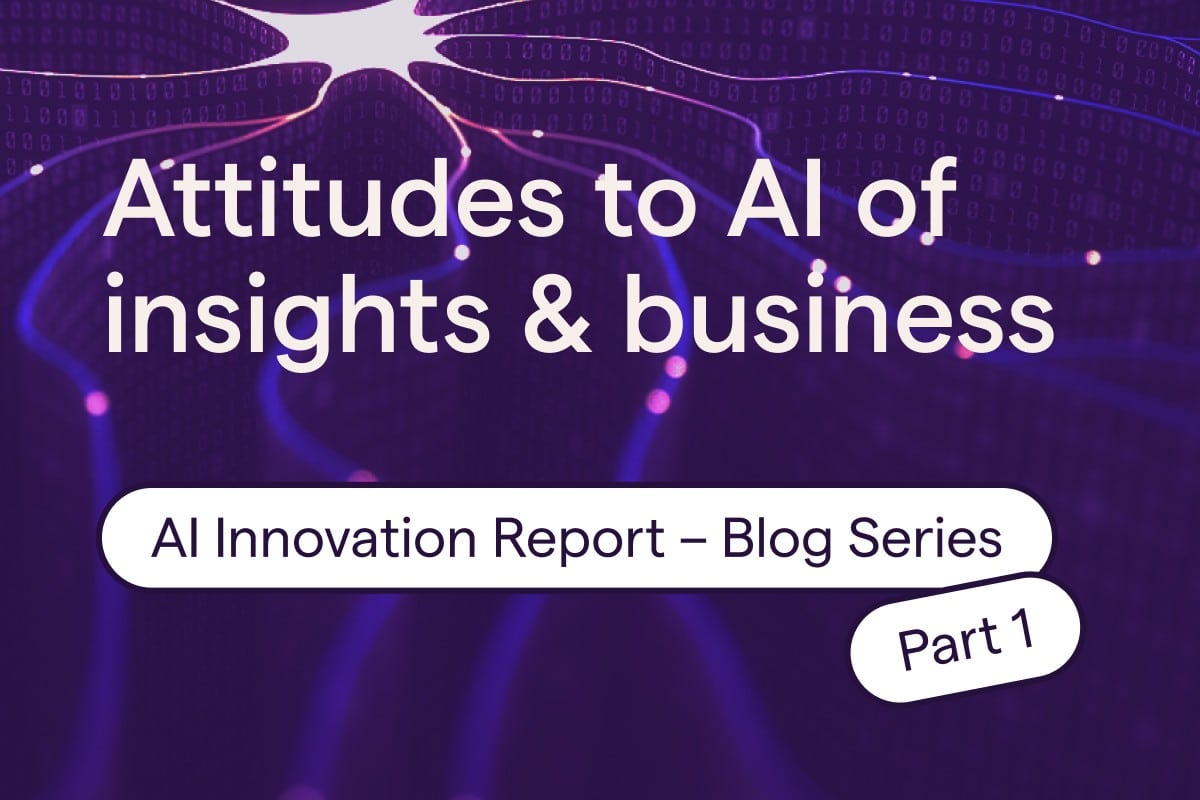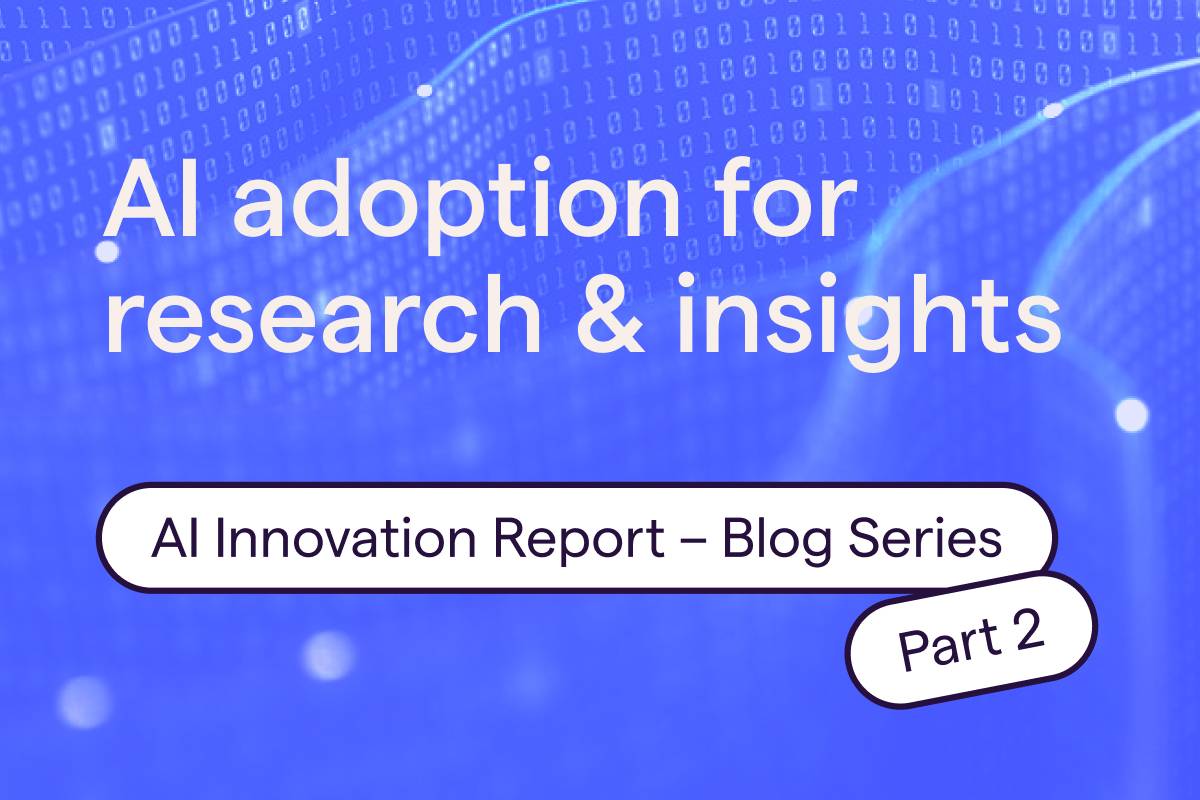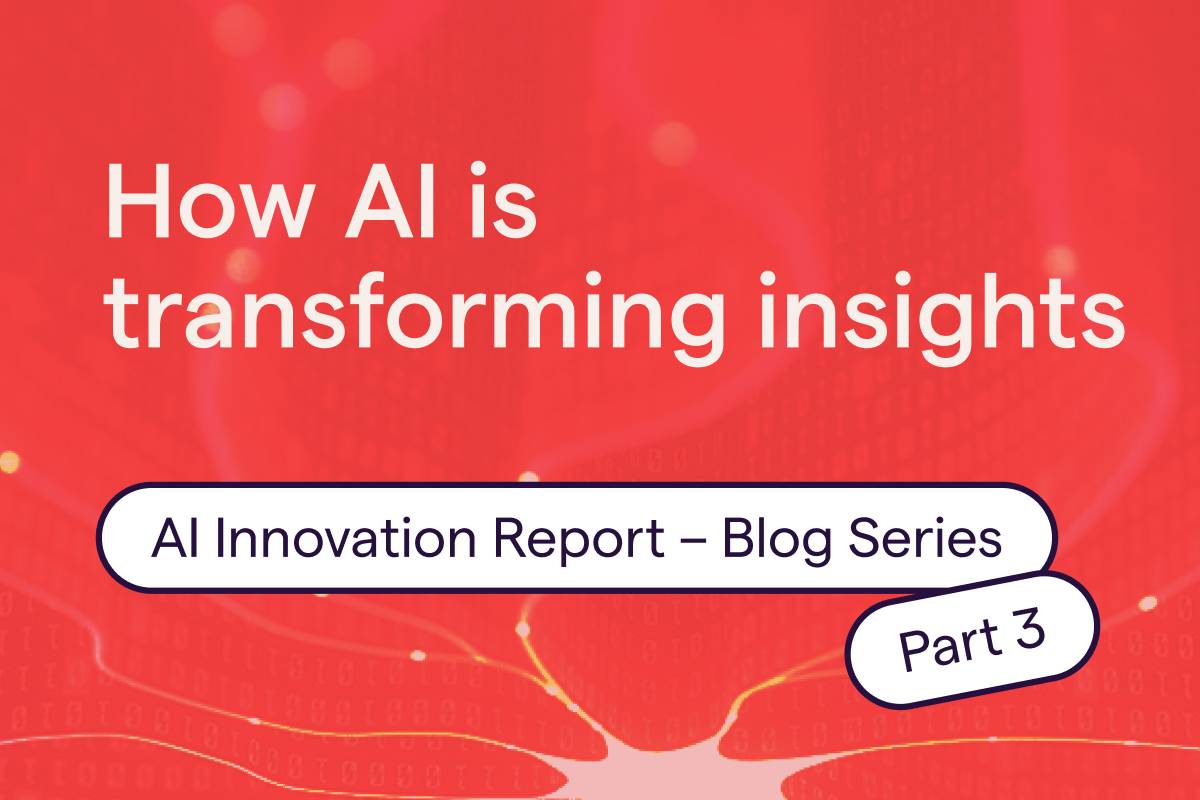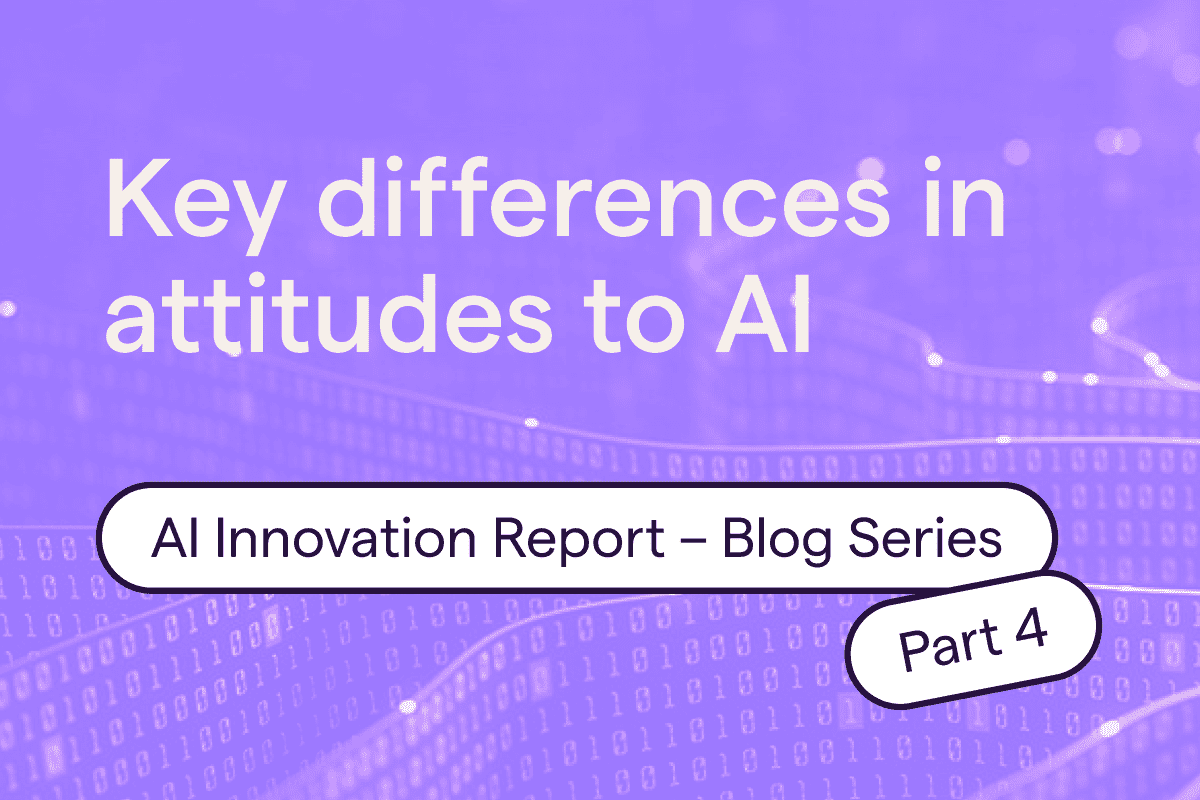How insights teams and stakeholders view AI’s role in research
What is the attitude towards AI at the time of the AI revolution amongst insights teams and stakeholders (business, marketing, product, strategy, etc)? Artificial intelligence (AI) seems to be everywhere these days — in news articles, LinkedIn posts, and conference papers — and the research and insights world is no exception.
Even before ChatGPT launched in late 2022, an innovation race was underway amongst insights technology companies. Machine learning capabilities such as text analytics, video analysis, and image recognition are now well-established in research and insights workflows. More recently, large language models (LLMs) have turbocharged this innovation with features like transcription and translation, summarization of qualitative data, and internal knowledge search for enterprise teams.
But how are people really feeling about the use and impact of AI in their organizations? Do stakeholders and insights teams love or fear the rising omnipresence of AI?
In September 2023, Market Logic and Insight Platforms conducted surveys and qualitative research with enterprise companies to answer this question. The results reveal some intriguing insights about AI’s perception in large organizations.
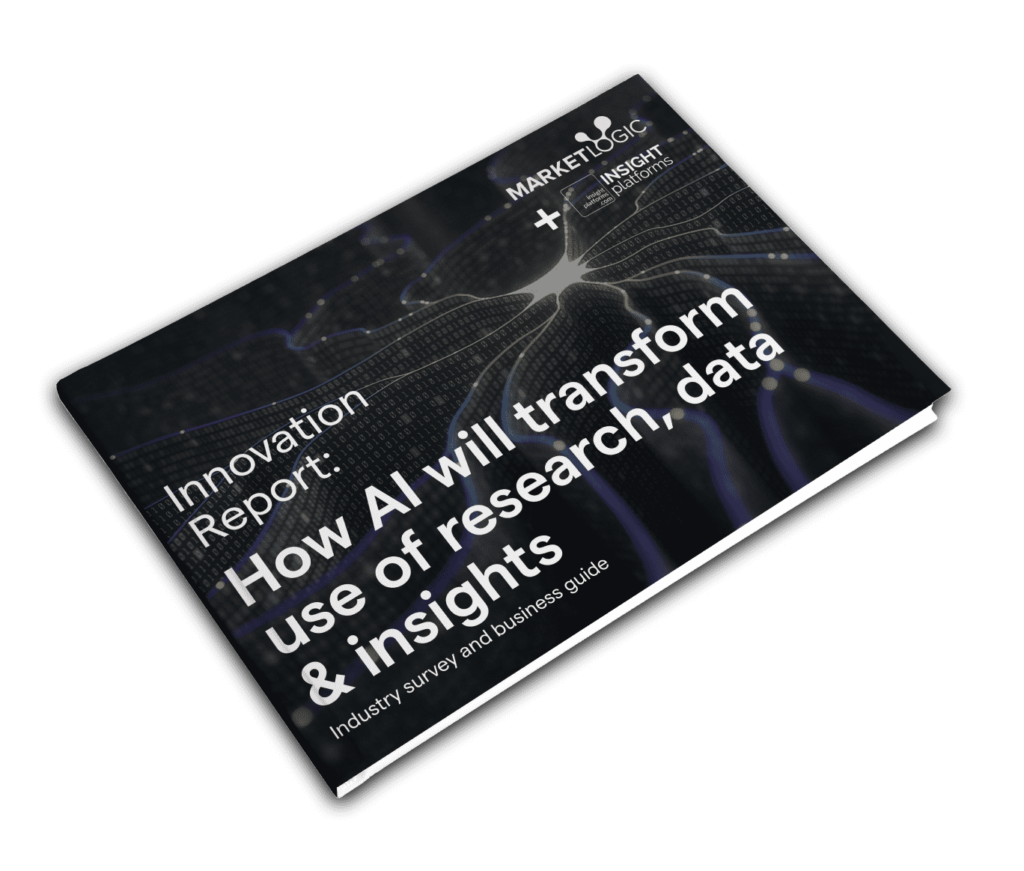
Overall attitudes to AI are positive
In general, insights teams and their stakeholders are enthusiastic: 64% of insights teams and 74% of stakeholders are positive or very positive about the implications of AI on research and insights.
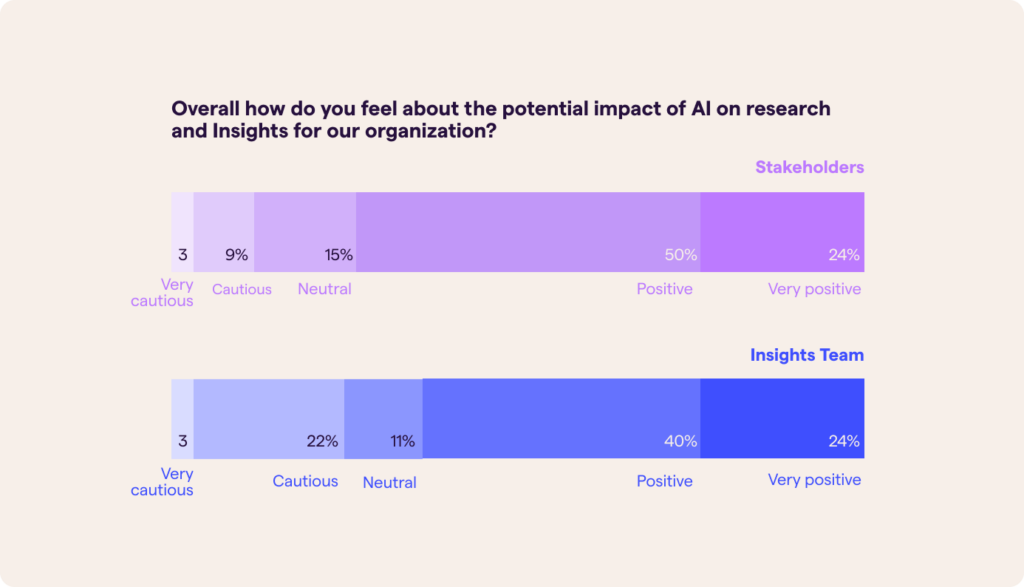
There is strong alignment between insights teams and stakeholders on some of the biggest use cases, in particular spotting trends faster, improved productivity and managing existing knowledge better.
[AI will] make us more efficient, especially for a smaller team that has a lot on our plates“
Marketing Stakeholder, CPG
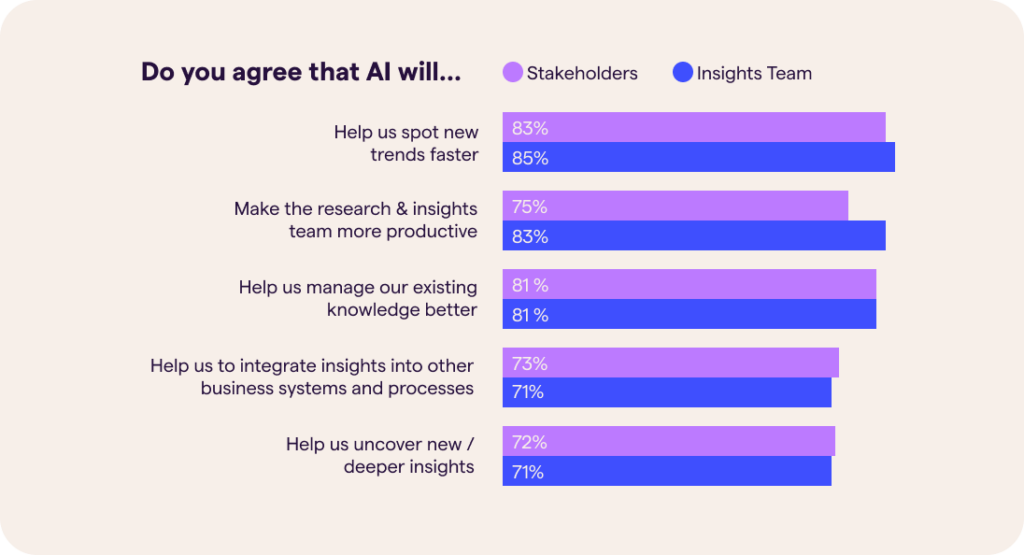
Balancing optimism with a cautious attitude toward AI adoption
However, despite the broad levels of positivity, important sub-groups of both insights teams and stakeholders remain skeptical.
25% of insights teams are cautious or very cautious about this technology, fearing potential issues around data privacy, confidentiality, production accuracy, and the maintenance of research quality standards.
To start with, it will save time spent manually analyzing text data. I don’t see it extending far beyond this for the time being as we will need to ensure that there is still data quality and robustness when anyone (within our outside of the team) is using anything generative“
Insights Team, CPG
Amongst stakeholders — which include marketing, business, product, and strategists —this cautious group is only half as big, at 12% of the total.
This slight divergence in attitudes to AI is also apparent when we ask about another set of potential benefits.
Insights teams are less likely to feel enthusiastic about AI’s potential to give stakeholders direct access to insights and to reduce costs of research and insights.

We need to ensure stakeholders are aware of the risks of them using research that is AI-designed by themselves”
Insights Team

How can you adapt to the AI-powered future?
As AI continues its relentless march into the research and insights domain, insights teams and stakeholders inevitably face a transformation challenge.
Ensuring future success for your organization will require a clear and proactive approach that includes:
- Defining clear expectations of what you want AI tools to deliver
- Understanding the potential impact of AI across your team’s team activities
- Building a robust business case for retaining and growing your insights teams even as AI leads to efficiency improvements.
Training and developing your team will be a crucial aspect of navigating this technology-infused landscape:
- Ensure your team members understand the potential and limitations of AI tools
- Reinforce compliance principles for maintaining data privacy and confidentiality
- Create documentation and clear guidelines for agencies working with AI tools
So, independent of your stance and attitude towards AI, it’s clear that the role of AI in insights and research will continue to expand. Striking the right balance between deploying AI capabilities and maintaining high-quality research standards will be the new success formula for insights leaders in the AI-powered future.
Ready to take the next step in becoming an insights-driven organization? Contact us to book a free consultation with a member of our team.

